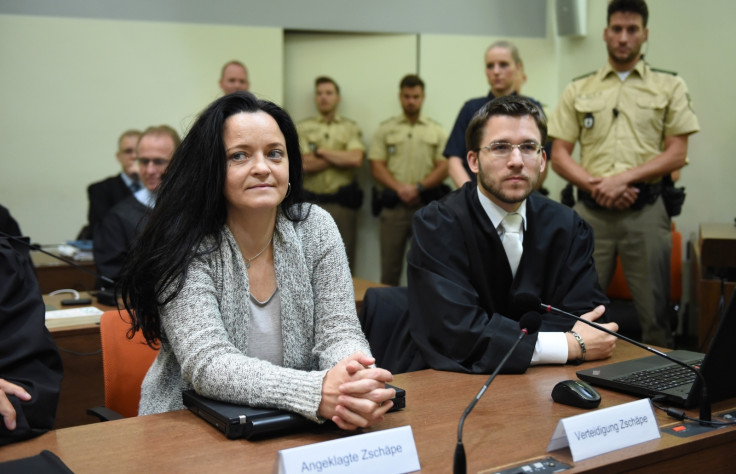German prosecutor demands life sentence for female suspected neo-Nazi terrorist
Beate Zschäpe accused of 10 murders that targeted Turkish immigrants across the country.

German prosecutors have called for a life sentence for the surviving female member of a neo-Nazi gang accused of a string of murders targeting Turkish immigrants.
Beate Zschäpe, 42, is accused of 10 killings and a litany of other crimes carried out by two members of the self-styled National Socialist Underground (NSU), Uwe Mundlos and Uwe Boehnhardt, between 2000 and 2007.
Prosecutor Herbert Diemer told a Munich court that Zschäpe was complicit in the murder of eight Turks, a Greek and a German policewoman over the seven-year killing spree.
Over that period the court heard the gang also carried out two bomb attacks in Cologne and 15 robberies.
Mundlos and Boehnhardt died in an apparent suicide pact after a botched bank robbery in 2011. Zschäpe had lived in hiding with the two men for years.
Judges heard that Zschäpe, along with her late accomplices, had an obvious affiliation with neo-Nazi ideology and sought to stoke fear among migrants living in Germany with random murders.
Prosecutor Diemer said Zschäpe was "a key member" of the NSU and made up "one-third of a conspiring triumvirate," reported German broadcaster Deutsche Welle.
The marathon trial, which began four years ago and has heard almost 600 witnesses, has gripped Germany.
After the deaths of the two men, the country was shocked to discover that the nationwide killings - long blamed by police and media on migrant crime gangs and dubbed the "doner (kebab) murders" - were in fact committed this tight far-right cell.
A verdict is not expected for several months in the trial where Zschäpe is also the dock with four suspected NSU supporters, including a former official at the far-right National Democratic Party.
Zschäpe has pleaded not guilty to the majority of the charges against her, saying she was unaware of the bloody crimes of the men she lived with.
Breaking her silence
She has only admitted to an arson charge, after torching the trio's common home following the death of the men. Zschäpe also admitted to distributing a DVD in which the group boasted about the killings in a film set to a comical Pink Panther theme.
During the lengthy trial she only once broke her silence, a year ago, telling the court that she was involved "neither in the planning nor the execution" of any crimes, and that she was "horrified" to learn about them afterwards, reported news agency Agence France-Presse.
However, Zschäpe admitted that as a youth in East Germany she had "indeed identified with nationalist ideology", but added that this did not mean she could commit such terrible acts.
The discovery of the NSU's existence in 2011 embarrassed German authorities, exposing domestic intelligence flaws that contributed to the cell going undetected for 13 years.
German security services faced withering criticism for up until then only associating terrorism with far-left or Islamist groups, not neo-Nazis.
A parliamentary panel in 2013 blamed institutional prejudice among security services for failing for years to solve the series of shootings committed by the pair with the same Ceska handgun.
The panel also criticised security services use of paid undercover informants, including violent leading neo-Nazis, who fed the money they received from the state back to their militant organisations.
© Copyright IBTimes 2025. All rights reserved.




















